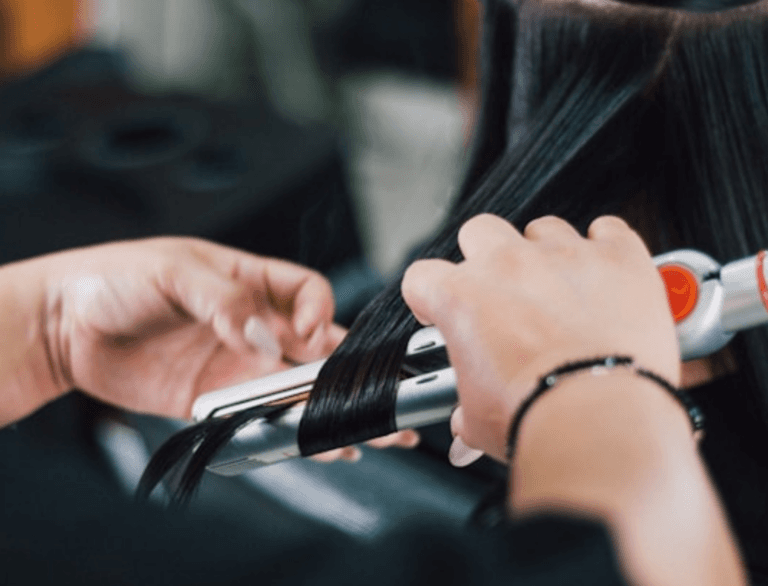In the quest for salon-perfect, frizz-free hair, keratin treatments have become the holy grail for many. My mom gets it every four to five months, and so do a lot of my friends. However, according to recent news, the treatment has a few dangerous side effects that might lead to second thoughts about getting it again.
The Root Of The Issue: Keratin’s Hidden Risks
At the heart of this controversy is a study published in The New England Journal of Medicine, revealing a link between keratin-based hair products, specifically those containing glyoxylic acid. Turns out that a less visible side effect of keratin-based treatments is acute kidney damage.
Keratin treatments owe their popularity to their transformative abilities. The treatment promises weeks of smooth, manageable hair regardless of its original texture. Here’s the science: keratin treatments infuse keratin directly into the hair fibre using heat. Since the rate of absorption increases with heat application, with regular use, keratin can potentially lead to kidney damage.
As per the Indian Express and Dr Urmila Anandh, HOD of nephrology at Amrita Hospital, Faridabad – keratin treatments used to have formaldehyde which used to have adverse reactions when it came in contact with hair, skin, and eyes. This was replaced with glyoxylic acid which is okay to use topically. “But,” Dr Urmila says, “when glycolic acid metabolises, it becomes glyoxylic acid, and finally forms oxalate, which in turn harms the kidneys.”
So basically, oxalate crystals form in the kidneys if too much glycolic acid permeates your scalp during a keratin treatment. This alarming connection emerged from 26 cases in Israel (as published in the American Journal of Kidney Diseases) where individuals experienced severe damage following keratin treatments, proved by kidney biopsies.
As the beauty industry grapples with these revelations, we are left to ponder the path to achieving hair goals without compromising health. While there is no mention of how much glyoxylic is safe for your treatment, we got Dr. Niti Gaur, MD, Fellowship in Cosmetic Dermatology(Singapore, USA), Board Certified Dermatologist Founder of Citrine Clinic, Gurgaon on board, to tell us how we can protect ourselves from the harmful effects of these treatments. Here’s what she said:
- Read the label: Check the ingredients of the product being used. Avoid treatments containing formaldehyde, methylene glycol, or glyoxylic acid.
- Ensure proper ventilation: Opt for treatments in well-ventilated areas to minimise inhaling harmful fumes.
- Control temperature and humidity: Try to do treatments in places that aren’t too hot or humid to minimise heat-related damage to the hair and the potential release of harmful chemicals.
- Drink plenty of water before and after treatments to help flush out any toxins that might be absorbed during the process.
- Minimise exposure to additional toxins that could worsen the effects of the treatment on both hair and health.
- Avoid keratin treatments if you have a history of kidney stones.
While the allure of hair straightening treatments is immense, caution is advised before going for such procedures.
Wrapping It Up
The journey to sleek, frizz-free hair should not lead to a detour through health complications. The revelations about keratin treatments and their potential kidney risks serve as a crucial reminder of the importance of understanding the products we use and their broader impacts. When applied topically, glyoxylic acid seems to be perfectly fine. But if absorbed, it fuses into your bloodstream to cause unimaginable consequences.
As the conversation around hair care safety continues, one thing remains clear: the need for transparency and safer alternatives in the beauty industry has never been more urgent. Whether you’re a die-hard keratin fan or contemplating your first treatment, staying informed and cautious is key to not only maintaining the health of your hair but safeguarding your overall health too. After all, true beauty should never come at the expense of our well-being.
Featured Image: Unsplash



